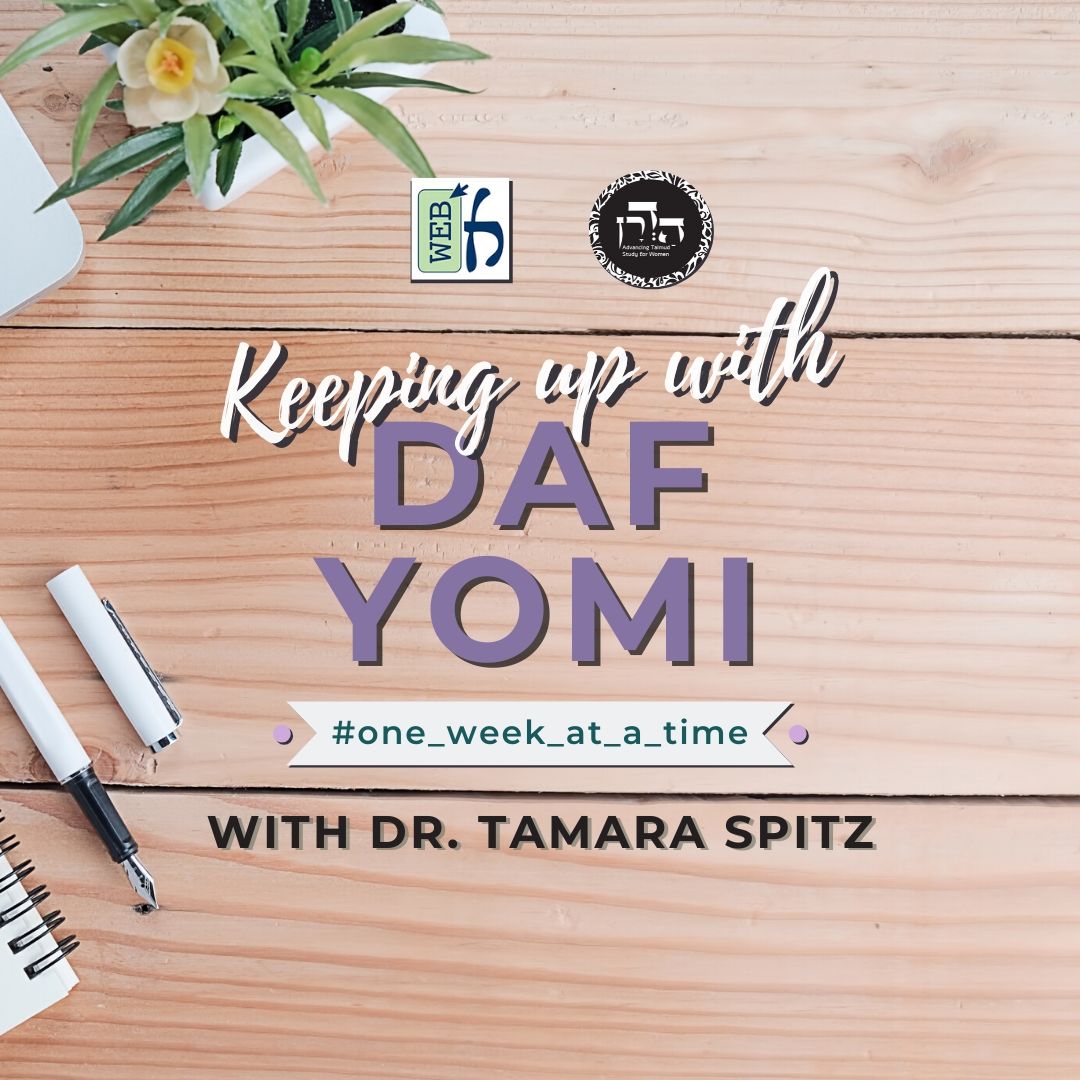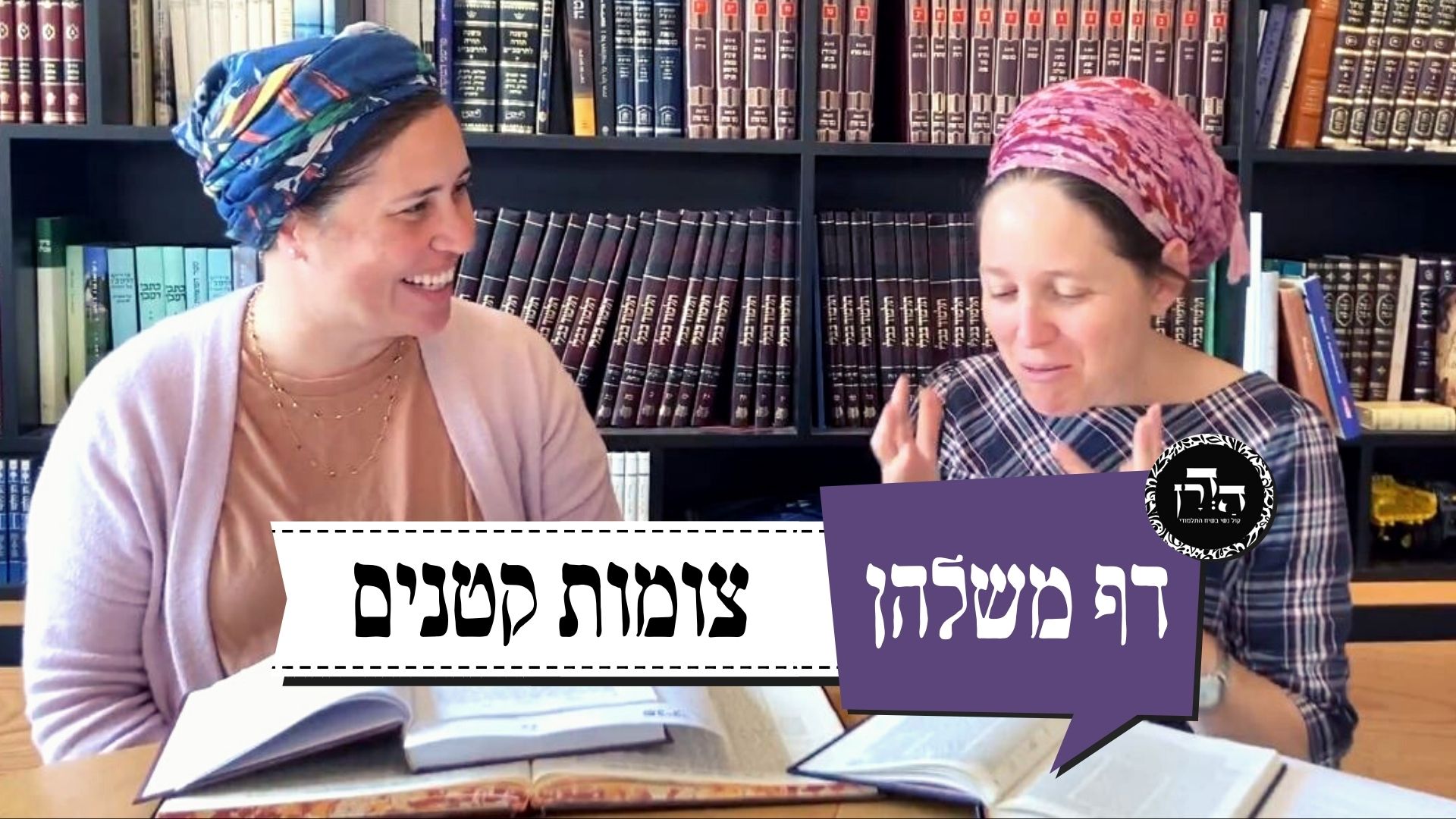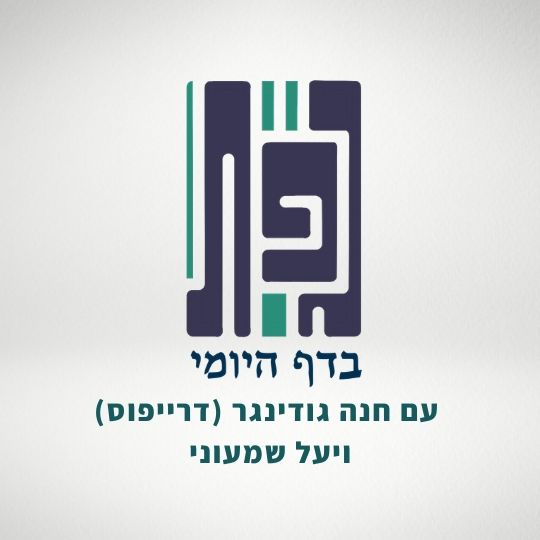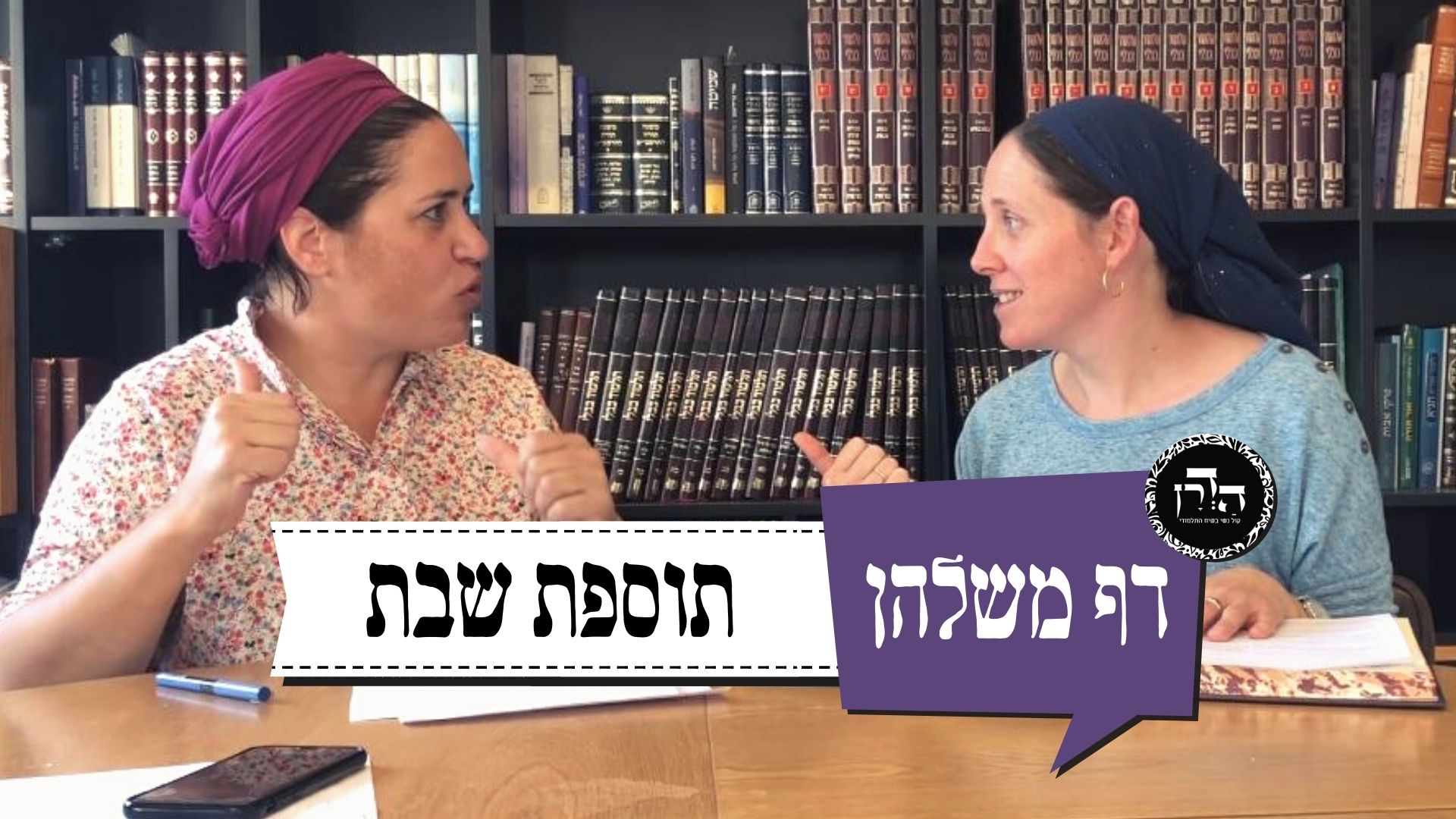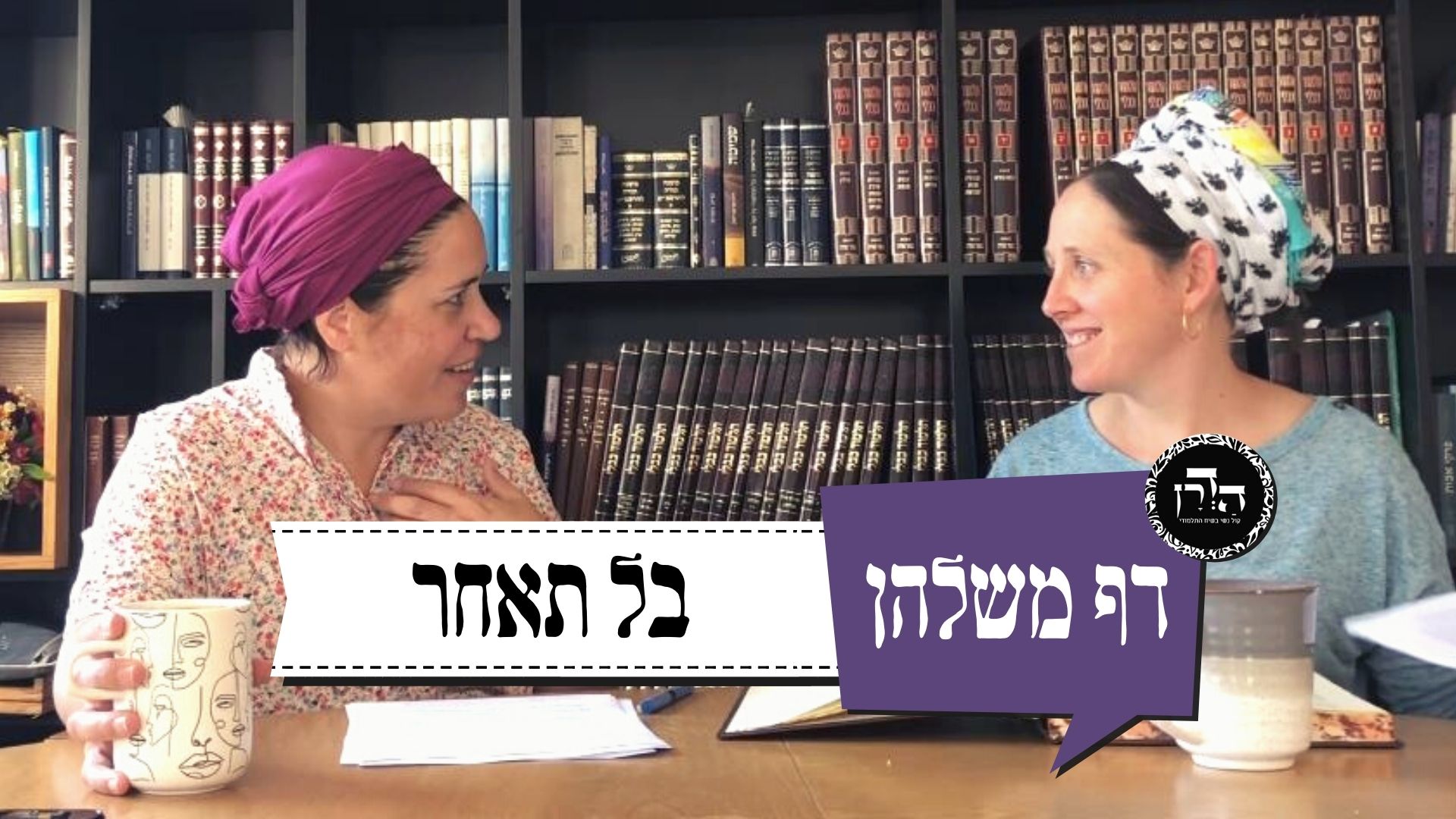ראש השנה כט
אִיכַּוַּון וּתְקַע לִי. אַלְמָא קָסָבַר: מַשְׁמִיעַ בָּעֵי כַּוָּונָה.
Have intent to sound the shofar on my behalf and sound it for me. The Gemara infers: Apparently, Rabbi Zeira maintains that he who sounds the shofar for others is required to have intent to discharge the hearer’s obligation.
מֵיתִיבִי: הָיָה עוֹבֵר אֲחוֹרֵי בֵּית הַכְּנֶסֶת, אוֹ שֶׁהָיָה בֵּיתוֹ סָמוּךְ לְבֵית הַכְּנֶסֶת, וְשָׁמַע קוֹל שׁוֹפָר אוֹ קוֹל מְגִילָּה, אִם כִּוֵּון לִבּוֹ — יָצָא, וְאִם לָאו — לֹא יָצָא. וְכִי כִּוֵּון לִבּוֹ מַאי הָוֵי? הֵיאַךְ לָא קָא מִיכַּוֵּין אַדַּעְתָּא דִּידֵיהּ!
The Gemara raises an objection from the mishna: If one was passing behind a synagogue, or his house was adjacent to the synagogue, and he heard the sound of the shofar or the sound of the Scroll of Esther being read, if he focused his heart to fulfill his obligation, he has fulfilled his obligation, but if not, he has not fulfilled his obligation. It may be asked: And, according to Rabbi Zeira, even if the hearer focused his heart, what of it? The other one, i.e., the one sounding the shofar, did not focus his intent to sound the shofar with him in mind? If indeed the intent of the one sounding the shofar is required, how does the passerby fulfill his obligation?
הָכָא בִּשְׁלִיחַ צִיבּוּר עָסְקִינַן, דְּדַעְתֵּיהּ אַכּוּלֵּיהּ עָלְמָא.
The Gemara answers: Here we are dealing with the representative of the community, i.e., one who sounds the shofar for the entire congregation and has everyone in mind. He does not sound it for a specific individual, but rather on behalf of the entire community, and therefore anyone who hears him sound the shofar fulfills his obligation.
תָּא שְׁמַע: נִתְכַּוֵּון שׁוֹמֵעַ וְלֹא נִתְכַּוֵּון מַשְׁמִיעַ, נִתְכַּוֵּון מַשְׁמִיעַ וְלֹא נִתְכַּוֵּון שׁוֹמֵעַ — לֹא יָצָא, עַד שֶׁיִּתְכַּוֵּון שׁוֹמֵעַ וּמַשְׁמִיעַ. קָתָנֵי מַשְׁמִיעַ דּומְיָא דְשׁוֹמֵעַ. מָה שׁוֹמֵעַ — שׁוֹמֵעַ לְעַצְמוֹ, אַף מַשְׁמִיעַ — מַשְׁמִיעַ לְעַצְמוֹ, וְקָתָנֵי לֹא יָצָא.
The Gemara raises another objection: Come and hear that which was taught in a baraita: If the hearer of the shofar had intent, but the sounder of the shofar did not have intent, or if the sounder of the shofar had intent, but the hearer did not have intent, he has not fulfilled his obligation, until both the hearer and the sounder have intent. The baraita teaches the halakha governing the sounder of the shofar in similar fashion to the halakha governing the hearer. From this it may be inferred that just as the hearer hears for himself, having intent to fulfill his own obligation, so too, the sounder sounds for himself, having intent to fulfill his own obligation, and not that of others. And the baraita teaches that if the sounder did not have this intent, the hearer has not fulfilled his obligation. But this indicates that if the sounder had intent to sound the shofar for himself, he need not have intent to sound it for others, therefore contradicting Rabbi Zeira’s opinion.
תַּנָּאֵי הִיא, דְּתַנְיָא: שׁוֹמֵעַ — שׁוֹמֵעַ לְעַצְמוֹ, וּמַשְׁמִיעַ — מַשְׁמִיעַ לְפִי דַּרְכּוֹ. אָמַר רַבִּי יוֹסֵי: בַּמֶּה דְּבָרִים אֲמוּרִים — בִּשְׁלִיחַ צִבּוּר, אֲבָל בְּיָחִיד — לָא יָצָא, עַד שֶׁיִּתְכַּוֵּין שׁוֹמֵעַ וּמַשְׁמִיעַ.
The Gemara answers: This is the subject of a dispute between tanna’im, as it is taught in a baraita: The hearer hears for himself, and the sounder sounds the shofar in his usual way, i.e., he need not intend to sound it for the sake of the hearer. Rabbi Yosei said: In what case is this statement said? It was said in the case of a representative of the community. But in the case of an ordinary individual, the hearer does not fulfill his obligation until both the hearer and the sounder have intent to discharge the hearer’s obligation, as argued by Rabbi Zeira.
מַתְנִי׳ ״וְהָיָה כַּאֲשֶׁר יָרִים מֹשֶׁה יָדוֹ וְגָבַר יִשְׂרָאֵל וְגוֹ׳״, וְכִי יָדָיו שֶׁל מֹשֶׁה עוֹשׂוֹת מִלְחָמָה אוֹ שׁוֹבְרוֹת מִלְחָמָה? אֶלָּא לוֹמַר לָךְ: כׇּל זְמַן שֶׁהָיוּ יִשְׂרָאֵל מִסְתַּכְּלִין כְּלַפֵּי מַעְלָה וּמְשַׁעְבְּדִין אֶת לִבָּם לַאֲבִיהֶם שֶׁבַּשָּׁמַיִם — הָיוּ מִתְגַּבְּרִים, וְאִם לָאו — הָיוּ נוֹפְלִים.
MISHNA: Incidental to the discussion of the required intent when sounding the shofar, the mishna cites the verse: “And it came to pass, when Moses held up his hand, that Israel prevailed; and when he let down his hand, Amalek prevailed” (Exodus 17:11). It may be asked: Did the hands of Moses make war when he raised them or break war when he lowered them? Rather, the verse comes to tell you that as long as the Jewish people turned their eyes upward and subjected their hearts to their Father in Heaven, they prevailed, but if not, they fell.
כַּיּוֹצֵא בַּדָּבָר אַתָּה אוֹמֵר: ״עֲשֵׂה לְךָ שָׂרָף וְשִׂים אוֹתוֹ עַל נֵס וְהָיָה כׇּל הַנָּשׁוּךְ וְרָאָה אוֹתוֹ וָחָי״, וְכִי נָחָשׁ מֵמִית, אוֹ נָחָשׁ מְחַיֶּה? אֶלָּא: בִּזְמַן שֶׁיִּשְׂרָאֵל מִסְתַּכְּלִין כְּלַפֵּי מַעְלָה וּמְשַׁעְבְּדִין אֶת לִבָּם לַאֲבִיהֶם שֶׁבַּשָּׁמַיִם — הָיוּ מִתְרַפְּאִין, וְאִם לָאו הָיוּ נִימּוֹקִים.
Similarly, you can say: The verse states: “Make for yourself a fiery serpent, and set it upon a pole; and it shall come to pass, that everyone that is bitten, when he sees it, he shall live” (Numbers 21:8). Once again it may be asked: Did the serpent kill, or did the serpent preserve life? Rather, when the Jewish people turned their eyes upward and subjected their hearts to their Father in Heaven, they were healed, but if not, they rotted from their snakebites.
חֵרֵשׁ שׁוֹטֶה וְקָטָן אֵין מוֹצִיאִין אֶת הָרַבִּים יְדֵי חוֹבָתָן. זֶה הַכְּלָל: כׇּל שֶׁאֵינוֹ מְחוּיָּיב בַּדָּבָר — אֵינוֹ מוֹצִיא אֶת הָרַבִּים יְדֵי חוֹבָתָן.
Returning to its halakhic discussion, the mishna continues: A deaf-mute, an imbecile, or a minor who sounds the shofar cannot discharge the obligation on behalf of the community. This is the principle with regard to similar matters: Whoever is not obligated to do a certain matter cannot discharge the obligation on behalf of the community.
גְּמָ׳ תָּנוּ רַבָּנַן: הַכֹּל חַיָּיבִין בִּתְקִיעַת שׁוֹפָר. כֹּהֲנִים וּלְוִיִּם וְיִשְׂרְאֵלִים. גֵּרִים וַעֲבָדִים מְשׁוּחְרָרִים. וְטוּמְטוּם וְאַנְדְּרוֹגִינוֹס. מִי שֶׁחֶצְיוֹ עֶבֶד וְחֶצְיוֹ בֶּן חוֹרִין.
GEMARA: The Sages taught the following baraita: All are obligated to sound the shofar: Priests, Levites, and ordinary Israelites; converts; freed slaves; a tumtum, i.e., one whose sexual organs from birth are concealed or are so undeveloped that it is impossible to determine whether the individual is male or female; a hermaphrodite [androginos], i.e., one with both male and female reproductive organs; and a half-slave, half-freeman.
טוּמְטוּם — אֵינוֹ מוֹצִיא לֹא אֶת מִינוֹ, וְלֹא אֶת שֶׁאֵינוֹ מִינוֹ. אַנְדְּרוֹגִינוֹס — מוֹצִיא אֶת מִינוֹ, אֲבָל לֹא אֶת שֶׁאֵינוֹ מִינוֹ. מִי שֶׁחֶצְיוֹ עֶבֶד וְחֶצְיוֹ בֶּן חוֹרִין — אֵינוֹ מוֹצִיא לֹא אֶת מִינוֹ, וְלֹא אֶת שֶׁאֵינוֹ מִינוֹ.
A tumtum who sounds the shofar cannot discharge the obligation of one of his kind, i.e., a fellow tumtum, since men are bound by the obligation, whereas women are not, and it is possible that the sounder is female and the hearer is male, nor can he discharge the obligation of one who is not of his kind, an ordinary man or woman. A hermaphrodite can discharge the obligation of one of his kind, a fellow hermaphrodite, since if the sounder is treated as a female, the hearer is also considered a female, but he cannot discharge the obligation of one who is not of his kind. One who is half-slave and half-freeman cannot discharge the obligation of one of his kind, as the slave component of the sounder cannot discharge the obligation of the free component of the hearer, and he certainly cannot discharge the obligation of one who is not of his kind, i.e., a completely free individual.
אָמַר מָר: הַכֹּל חַיָּיבִין בִּתְקִיעַת שׁוֹפָר, כֹּהֲנִים לְוִיִּם וְיִשְׂרְאֵלִים. פְּשִׁיטָא! אִי הָנֵי לָא מִיחַיְּיבִי — מַאן מִיחַיְּיבִי?!
The Master said above in the baraita: All are obligated to sound the shofar: Priests, Levites, and ordinary Israelites. The Gemara asks in astonishment: Isn’t that obvious? If these people are not obligated to perform the mitzva, who then is obligated to perform it?
כֹּהֲנִים אִצְטְרִיכָא לֵיהּ, סָלְקָא דַּעְתָּךְ אָמֵינָא: הוֹאִיל וּכְתִיב ״יוֹם תְּרוּעָה יִהְיֶה לָכֶם״, מַאן דְּלֵיתֵיהּ אֶלָּא בִּתְקִיעָה דְּחַד יוֹמָא — הוּא דְּמִיחַיַּיב, וְהָנֵי כֹּהֲנִים, הוֹאִיל וְאִיתַנְהוּ בִּתְקִיעוֹת דְּכׇל הַשָּׁנָה, דִּכְתִיב: ״וּתְקַעְתֶּם בַּחֲצוֹצְרוֹת עַל עוֹלוֹתֵיכֶם״, אֵימָא לָא לִיחַיְּיבוּ — קָא מַשְׁמַע לַן.
The Gemara answers: It was necessary to say that priests are obligated to fulfill the mitzva, for it may enter your mind to say as follows: Since it is written: “It is a day of sounding the shofar to you” (Numbers 29:1), you might have said that with regard to one who is obligated to sound only one day, he is obligated to sound the shofar on Rosh HaShana. But with regard to these priests, since they are obligated to sound all year long, because they sound trumpets when they offer the sacrifices in the Temple, as it is written: “And you shall sound the trumpets over your burnt-offerings, and over the sacrifices of your peace-offerings” (Numbers 10:10), you might say that they are not obligated to sound the shofar on Rosh HaShana. Therefore, the baraita comes to teach us that this is not true, and that even priests are obligated to fulfill the mitzva.
מִי דָּמֵי? הָתָם חֲצוֹצְרוֹת וְהָכָא שׁוֹפָר! אֶלָּא אִצְטְרִיךְ: סָלְקָא דַּעְתָּךְ אָמֵינָא, הוֹאִיל וּתְנַן: שָׁוֶה הַיּוֹבֵל לְרֹאשׁ הַשָּׁנָה לַתְּקִיעָה וְלַבְּרָכוֹת, מַאן דְּאִיתֵיהּ בְּמִצְוַת הַיּוֹבֵל — אִיתֵיהּ בְּמִצְוָה דְּרֹאשׁ הַשָּׁנָה, וְהָנֵי כֹּהֲנִים, הוֹאִיל וְלֵיתַנְהוּ בְּמִצְוָה דְּיוֹבֵל, דִּתְנַן: כֹּהֲנִים וּלְוִיִּם מוֹכְרִין לְעוֹלָם וְגוֹאֲלִין לְעוֹלָם, אֵימָא: בְּמִצְוָה דְּרֹאשׁ הַשָּׁנָה לֹא לִיחַיְּיבוּ — קָא מַשְׁמַע לַן.
The Gemara asks: Are these things comparable? There, the priests sound trumpets, and here, we are dealing with the sounding of a shofar. Rather, it was necessary to say that priests are obligated to fulfill the mitzva for a different reason, for it may enter your mind to say as follows: Since we learned in a mishna: Yom Kippur of the Jubilee Year is the same as Rosh HaShana, with regard to both the shofar blasts and the additional blessings that are recited in the Amida prayer, I might have said: One who is fully included in the mitzva of the Jubilee is also included in the mitzva of Rosh HaShana. But these priests, since they are not fully included in the mitzva of the Jubilee, as we learned in a mishna: Priests and Levites may sell their fields forever and they may also redeem their lands forever, and they are not bound by the halakhot of the Jubilee Year, I might say that they should also not be obligated to fulfill the mitzva of Rosh HaShana. Therefore, the baraita comes to teach us that this is not so, and that even priests are obligated to fulfill the mitzva.
מִי שֶׁחֶצְיוֹ עֶבֶד וְחֶצְיוֹ בֶּן חוֹרִין — אֵינוֹ מוֹצִיא לֹא אֶת מִינוֹ וְלֹא אֶת שֶׁאֵינוֹ מִינוֹ. אָמַר רַב הוּנָא: וּלְעַצְמוֹ מוֹצִיא.
§ It was taught in the same baraita: A half-slave, half-freeman cannot discharge the obligation on behalf of one of his kind, and he certainly cannot discharge the obligation on behalf of one who is not of his kind. Rav Huna said: Even though he cannot discharge the obligation on behalf of others, he can discharge the obligation on behalf of himself.
אֲמַר לֵיהּ רַב נַחְמָן לְרַב הוּנָא: מַאי שְׁנָא לַאֲחֵרִים דְּלָא — דְּלָא אָתֵי צַד עַבְדוּת וּמַפֵּיק צַד חֵירוּת, לְעַצְמוֹ נָמֵי — לָא אָתֵי צַד עַבְדוּת דִּידֵיהּ וּמַפֵּיק צַד חֵירוּת דִּידֵיהּ.
Rav Naḥman said to Rav Huna: What is the difference whereby he may discharge the obligation on behalf of himself but not on behalf of others? Because his slave component cannot come and discharge the obligation on behalf of the free component of the other. If so, with regard to himself as well, his slave component should not be able to come and discharge the obligation on behalf of his free component.
אֶלָּא אָמַר רַב נַחְמָן: אַף לְעַצְמוֹ אֵינוֹ מוֹצִיא. תַּנְיָא נָמֵי הָכִי: מִי שֶׁחֶצְיוֹ עֶבֶד וְחֶצְיוֹ בֶּן חוֹרִין — אַף לְעַצְמוֹ אֵינוֹ מוֹצִיא.
Rather, Rav Naḥman said: Even on behalf of himself he cannot discharge the obligation. The Gemara comments: This is also taught in a baraita: A half-slave, half-freeman cannot discharge the obligation even for himself.
תָּנֵי אַהֲבָה בְּרֵיהּ דְּרַבִּי זֵירָא: כׇּל הַבְּרָכוֹת כּוּלָּן, אַף עַל פִּי שֶׁיָּצָא — מוֹצִיא. חוּץ מִבִּרְכַּת הַלֶּחֶם וּבִרְכַּת הַיַּיִן, שֶׁאִם לֹא יָצָא — מוֹצִיא, וְאִם יָצָא — אֵינוֹ מוֹצִיא.
Continuing the discussion of performing an obligation on behalf of others, Ahava, son of Rabbi Zeira, taught the following baraita: With regard to all the blessings, even if one already recited a blessing for himself and has consequently fulfilled his own obligation, he can still recite a blessing for others and thereby discharge their obligation, as all Jews are responsible for one another. This is true with regard to all blessings except for the blessing recited over bread and the blessing recited over wine, both before and after their consumption. With regard to these blessings, if he has not yet fulfilled his own obligation, he can discharge the obligation of others as well, but if he already fulfilled his own obligation, he cannot discharge the obligation of others, as these blessings are recited in appreciation of physical enjoyment, and can only be recited by one who is actually deriving pleasure at the time.
בָּעֵי רָבָא:
Rava raised a dilemma:
בִּרְכַּת הַלֶּחֶם שֶׁל מַצָּה, וּבִרְכַּת הַיַּיִן שֶׁל קִידּוּשׁ הַיּוֹם, מַהוּ? כֵּיוָן דְּחוֹבָה הוּא — מַפֵּיק, אוֹ דִלְמָא: בְּרָכָה לָאו חוֹבָה הִיא.
With regard to the blessing over bread that is recited before eating matza at the Passover seder and the blessing over wine recited as part of the sanctification of the day of Shabbat or a Festival, what is the halakha? The Gemara analyzes the question: Do we say that since there is an obligation to recite these blessings due to the mitzva involved, therefore one can discharge the obligation for others, even if he himself has already fulfilled his obligation? Or perhaps we say that the blessing itself is not an obligation, but rather the obligation lies in the eating and drinking, and the blessing is recited over one’s physical enjoyment; therefore, if he already fulfilled his own obligation, he cannot recite the blessing for others, as he derives no pleasure at this time.
תָּא שְׁמַע, דְּאָמַר רַב אָשֵׁי: כִּי הֲוֵינַן בֵּי רַב פַּפֵּי, הֲוָה מְקַדֵּשׁ לַן. וְכִי הֲוָה אָתֵי אֲרִיסֵיהּ מִדַּבְרָא, הֲוָה מְקַדֵּשׁ לְהוּ.
The Gemara answers: Come and hear an answer to this question from what Rav Ashi said: When we were studying in the school of Rav Pappi, he would recite kiddush for us, and when his tenants would arrive from the field he would recite kiddush once again on their behalf. Therefore, it is clear that one may recite kiddush on behalf of others, including the blessing that is recited over the wine, even if he himself has already fulfilled his own obligation.
תָּנוּ רַבָּנַן: לָא יִפְרוֹס אָדָם פְּרוּסָה לָאוֹרְחִין אֶלָּא אִם כֵּן אוֹכֵל עִמָּהֶם, אֲבָל פּוֹרֵס הוּא לְבָנָיו וְלִבְנֵי בֵיתוֹ כְּדֵי לְחַנְּכָן בְּמִצְוֹת. וּבְהַלֵּל וּבַמְּגִילָּה, אַף עַל פִּי שֶׁיָּצָא — מוֹצִיא.
The Sages taught in a baraita: One should not break bread and recite a blessing for guests unless he is eating with them, so that he is obligated to recite a blessing for himself. But he may break bread for his children and for the other members of his household and recite the blessing, in order to educate them to perform the mitzvot, so that they know how to recite a blessing. And with regard to hallel and the Scroll of Esther, the halakha is that even if he already fulfilled his obligation, he can still discharge the obligation of others.
הֲדַרַן עֲלָךְ רָאוּהוּ בֵּית דִּין
יוֹם טוֹב שֶׁל רֹאשׁ הַשָּׁנָה שֶׁחָל לִהְיוֹת בְּשַׁבָּת — בַּמִּקְדָּשׁ הָיוּ תּוֹקְעִין, אֲבָל לֹא בַּמְּדִינָה. מִשֶּׁחָרַב בֵּית הַמִּקְדָּשׁ, הִתְקִין רַבָּן יוֹחָנָן בֶּן זַכַּאי שֶׁיְּהוּ תּוֹקְעִין בְּכׇל מָקוֹם שֶׁיֵּשׁ בּוֹ בֵּית דִּין. אָמַר רַבִּי אֶלְעָזָר: לֹא הִתְקִין רַבָּן יוֹחָנָן בֶּן זַכַּאי אֶלָּא בְּיַבְנֶה בִּלְבַד. אָמְרוּ לוֹ: אֶחָד יַבְנֶה, וְאֶחָד כׇּל מָקוֹם שֶׁיֵּשׁ בּוֹ בֵּית דִּין.
MISHNA: With regard to the Festival day of Rosh HaShana that occurs on Shabbat, in the Temple they would sound the shofar as usual. However, they would not sound it in the rest of the country outside the Temple. After the Temple was destroyed, Rabban Yoḥanan ben Zakkai instituted that the people should sound the shofar on Shabbat in every place where there is a court of twenty-three judges. Rabbi Elazar said: Rabban Yoḥanan ben Zakkai instituted this practice only in Yavne, where the Great Sanhedrin of seventy-one judges resided in his time, but nowhere else. They said to him: He instituted the practice both in Yavne and in any place where there is a court.
וְעוֹד זֹאת הָיְתָה יְרוּשָׁלַיִם יְתֵירָה עַל יַבְנֶה, שֶׁכׇּל עִיר שֶׁהִיא רוֹאָה, וְשׁוֹמַעַת, וּקְרוֹבָה, וִיכוֹלָה לָבוֹא — תּוֹקְעִין. וּבְיַבְנֶה לֹא הָיוּ תּוֹקְעִין אֶלָּא בְּבֵית דִּין בִּלְבַד.
The mishna adds: And Jerusalem in earlier times had this additional superiority over Yavne after Rabban Yoḥanan ben Zakkai instituted this practice, for in any city whose residents could see Jerusalem and hear the sounding of the shofar from there, and which was near to Jerusalem and people could come to Jerusalem from there, they would sound the shofar there as well, as it was considered part of Jerusalem. But in Yavne they would sound the shofar only in the court itself, not in the surrounding cities.
גְּמָ׳ מְנָא הָנֵי מִילֵּי? אָמַר רַבִּי לֵוִי בַּר לַחְמָא אָמַר רַבִּי חָמָא בַּר חֲנִינָא: כָּתוּב אֶחָד אוֹמֵר: ״שַׁבָּתוֹן זִכְרוֹן תְּרוּעָה״. וְכָתוּב אֶחָד אוֹמֵר: ״יוֹם תְּרוּעָה יִהְיֶה לָכֶם״! לָא קַשְׁיָא: כָּאן — בְּיוֹם טוֹב שֶׁחָל לִהְיוֹת בַּשַּׁבָּת, כָּאן — בְּיוֹם טוֹב שֶׁחָל לִהְיוֹת בַּחוֹל.
GEMARA: The Gemara asks: From where are these matters; from where is it derived that the shofar is not sounded on Shabbat? Rabbi Levi bar Laḥma said that Rabbi Ḥama bar Ḥanina said: One verse says, with regard to Rosh HaShana: “A solemn rest, a memorial of blasts” (Leviticus 23:24), which indicates that one should merely remember the shofar without actually sounding it. And another verse says: “It is a day of blowing for you” (Numbers 29:1), i.e., a day on which one must actually sound the shofar. This apparent contradiction is not difficult: Here, the verse in which the shofar is only being remembered but not sounded, is referring to a Festival that occurs on Shabbat; there, the verse in which the shofar is actually sounded, is referring to a Festival that occurs on a weekday.
אָמַר רָבָא: אִי מִדְּאוֹרָיְיתָא הִיא, בַּמִּקְדָּשׁ הֵיכִי תָּקְעִינַן? וְעוֹד: הָא לָאו מְלָאכָה הִיא, דְּאִצְטְרִיךְ קְרָא לְמַעוֹטֵי.
Rava said: This explanation is difficult, for if the distinction between Shabbat and the rest of the week applies by Torah law, how does one sound the shofar on Shabbat in the Temple? If it is prohibited to sound the shofar on Shabbat, it should be prohibited everywhere. And furthermore, there is an additional problem with this explanation: Although the Sages prohibited sounding a shofar and playing other musical instruments on Shabbat, by Torah law sounding a shofar is not a prohibited labor on Shabbat such that a verse is necessary to exclude it when Rosh HaShana occurs on Shabbat.
דְּתָנָא דְּבֵי שְׁמוּאֵל: ״כׇּל מְלֶאכֶת עֲבוֹדָה לֹא תַּעֲשׂוּ״, יָצְתָה תְּקִיעַת שׁוֹפָר וּרְדִיַּית הַפַּת, שֶׁהִיא חָכְמָה וְאֵינָהּ מְלָאכָה.
The Gemara cites a proof for this last claim: As a Sage of the school of Shmuel taught in a baraita, with regard to the verse that prohibits performing prohibited labor on Festivals: “Any prohibited labor of work you shall not perform” (Numbers 29:1). This comes to exclude from the category of prohibited labors the sounding of the shofar and the removal of bread from the oven, each of which is a skill and not a labor, and therefore they are not included in the category of prohibited labor. Apparently, sounding the shofar is not prohibited by Torah law.
אֶלָּא אָמַר רָבָא: מִדְּאוֹרָיְיתָא מִישְׁרֵא שְׁרֵי, וְרַבָּנַן הוּא דִּגְזוּר בֵּיהּ כִּדְרַבָּה. דְּאָמַר רַבָּה: הַכֹּל חַיָּיבִין בִּתְקִיעַת שׁוֹפָר, וְאֵין הַכֹּל בְּקִיאִין בִּתְקִיעַת שׁוֹפָר, גְּזֵירָה שֶׁמָּא יִטְּלֶנּוּ בְּיָדוֹ וְיֵלֵךְ אֵצֶל הַבָּקִי לִלְמוֹד, וְיַעֲבִירֶנּוּ אַרְבַּע אַמּוֹת בִּרְשׁוּת הָרַבִּים.
Rather, Rava said: By Torah law one is permitted to sound the shofar on Rosh HaShana even on Shabbat, and it was the Sages who decreed that it is prohibited. This is in accordance with the opinion of Rabba, as Rabba said: All are obligated to sound the shofar on Rosh HaShana, but not all are experts in sounding the shofar. Therefore, the Sages instituted a decree that the shofar should not be sounded on Shabbat, lest one take the shofar in his hand and go to an expert to learn how to sound it or to have him sound it for him, and due to his preoccupation he might carry it four cubits in the public domain, which is a desecration of Shabbat.
וְהַיְינוּ טַעְמָא דְלוּלָב, וְהַיְינוּ טַעְמָא דִמְגִילָּה.
The Gemara comments: And this is also the reason for the rabbinical decree that the palm branch [lulav] may not be taken on Shabbat, and this is likewise the reason for the decree that the Megilla of Esther may not be read on Shabbat. The Sages were concerned that one might carry the lulav or the Megilla four cubits in the public domain to take it to an expert who will teach him the proper manner to perform these mitzvot.
מִשֶּׁחָרַב בֵּית הַמִּקְדָּשׁ הִתְקִין רַבָּן יוֹחָנָן בֶּן זַכַּאי וְכוּ׳. תָּנוּ רַבָּנַן: פַּעַם אַחַת חָל רֹאשׁ הַשָּׁנָה לִהְיוֹת בְּשַׁבָּת, וְהָיוּ כׇל הֶעָרִים מִתְכַּנְּסִין. אָמַר לָהֶם רַבָּן יוֹחָנָן בֶּן זַכַּאי לִבְנֵי בְּתִירָה: נִתְקַע! אָמְרוּ לוֹ: נָדוּן.
§ The mishna taught: After the Temple was destroyed, Rabban Yoḥanan ben Zakkai instituted that the people should sound the shofar even on Shabbat in every place where there is a court of twenty-three judges. The background to this decree is related in greater detail in a baraita, as the Sages taught: Once Rosh HaShana occurred on Shabbat, and all the cities gathered at the Great Sanhedrin in Yavne for the Festival prayers. Rabban Yoḥanan ben Zakkai said to the sons of Beteira, who were the leading halakhic authorities of the generation: Let us sound the shofar, as in the Temple. They said to him: Let us discuss whether or not this is permitted.
אָמַר לָהֶם: נִתְקַע, וְאַחַר כָּךְ נָדוּן. לְאַחַר שֶׁתָּקְעוּ, אָמְרוּ לוֹ: נָדוּן! אָמַר לָהֶם: כְּבָר נִשְׁמְעָה קֶרֶן בְּיַבְנֶה, וְאֵין מְשִׁיבִין לְאַחַר מַעֲשֶׂה.
He said to them: First let us sound it, and afterward, when there is time, let us discuss the matter. After they sounded the shofar, the sons of Beteira said to Rabban Yoḥanan ben Zakkai: Let us now discuss the issue. He said to them: The horn has already been heard in Yavne, and one does not refute a ruling after action has already been taken. There is no point in discussing the matter, as it would be inappropriate to say that the community acted erroneously after the fact.
אָמַר רַבִּי אֶלְעָזָר: לֹא הִתְקִין רַבָּן יוֹחָנָן בֶּן זַכַּאי אֶלָּא בְּיַבְנֶה בִּלְבַד. אָמְרוּ לוֹ: אֶחָד יַבְנֶה וְאֶחָד כׇּל מָקוֹם שֶׁיֵּשׁ בּוֹ בֵּית דִּין. אָמְרוּ לוֹ: הַיְינוּ תַּנָּא קַמָּא!
§ The mishna further stated that Rabbi Elazar said: Rabban Yoḥanan ben Zakkai instituted this practice only in Yavne. They said to him: He instituted the practice both in Yavne and in any place where there is a court. The Gemara asks: This last statement of the Rabbis: They said to him, etc.; is the same as the opinion of the first tanna of the mishna. Why did the mishna repeat this opinion?
אִיכָּא בֵּינַיְיהוּ בֵּי דִינָא דְּאַקְרַאי.
The Gemara answers: The practical difference between the opinion of the first tanna and the opinion of the Rabbis who issued that last statement is with regard to a temporary court, i.e., one that is not fixed in a certain place. According to the opinion of the first tanna, the shofar is sounded there as well, whereas according to the opinion of the Rabbis who responded to Rabbi Elazar, the shofar is sounded only in a place where there is a permanent court, similar to that in Yavne.
אָמְרוּ לוֹ: אֶחָד יַבְנֶה וְאֶחָד כׇּל מָקוֹם שֶׁיֵּשׁ בּוֹ בֵּית דִּין. אָמַר רַב הוּנָא:
§ The mishna taught that they said to him: He instituted the practice both in Yavne and in any place where there is a court. Rav Huna said:



